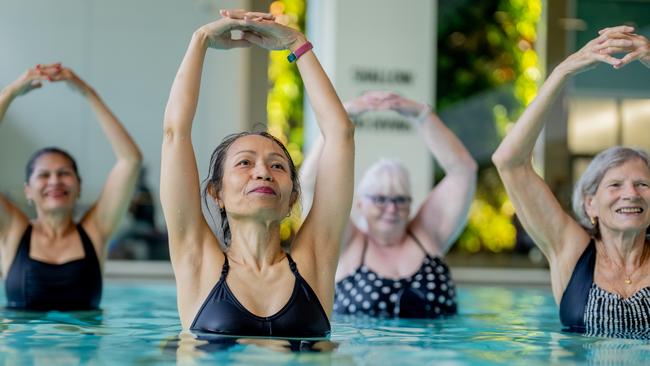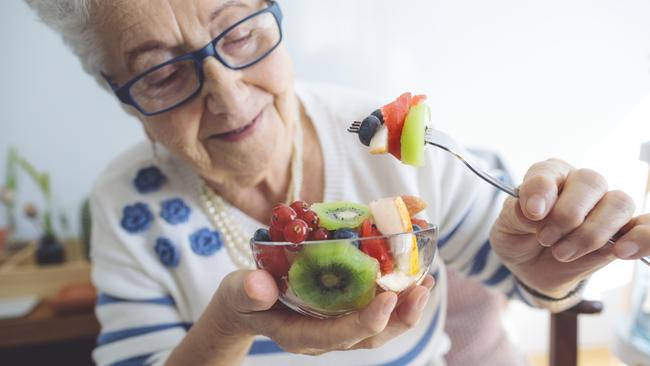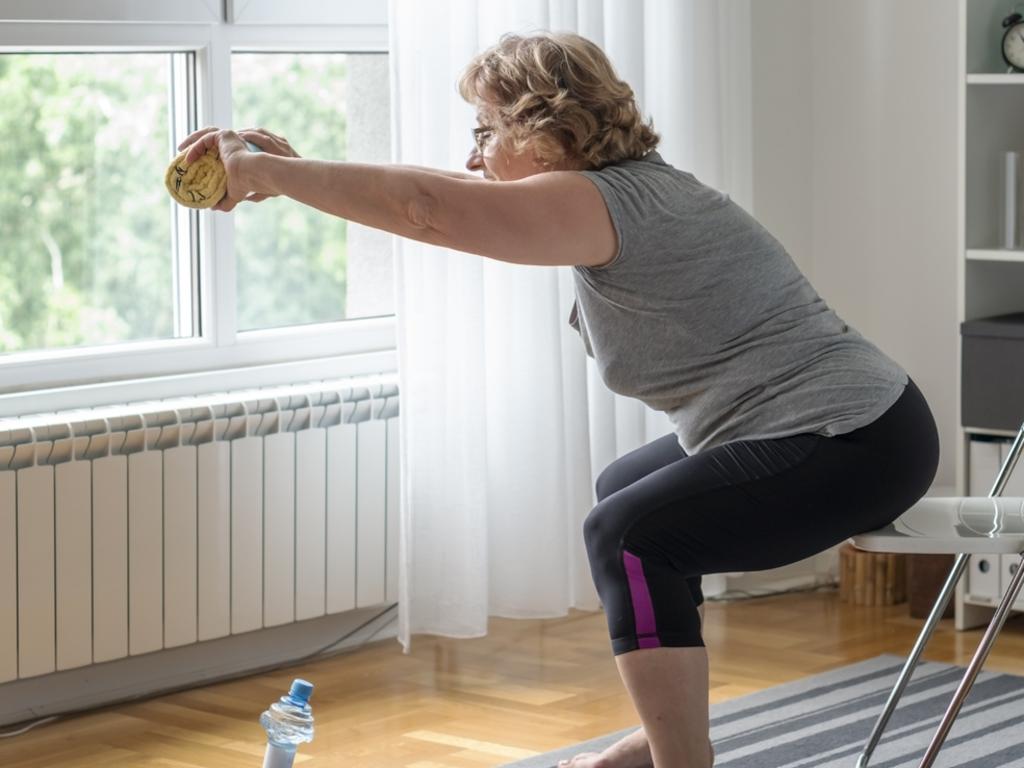It is possible to be here for a good time AND a long time?
How do you maximise your ‘health span’, not just your life span? We have the latest.

Who wants to live forever? Lots of us do, it seems. Australians are searching for terms like “longevity” more than ever and social media is full of longevity advice. Living longer is high on the agenda for millions of us.
We should be careful what we wish for, though. Nobody wants to be a burden for their families and loved ones in their later years. Is there anything that genuinely can bless us with more but – importantly – healthier later years? The good news is that the latest science tells us the answer is yes.
We all recognise there is a difference between lifespan and what we now refer to as “healthspan”. Healthspan is the proportion of your life during which you are healthy. These are the years when you can enjoy life free of illness, when you can contribute and participate, when you can love. Few of us wish for more years blighted by ill health and incapacity.
While each of us ages at a different rate, the ageing process is something we all have in common. Our body slowly loses its capacity to function and accomplish what we want it to. With age, the capacity for bodily repair diminishes, leaving us more vulnerable. Our brains and muscles shrink. We lose strength and our defences dwindle, meaning that fighting off infection becomes more difficult. We think and move more slowly. Our hearts slowly lose reserve.
Age really is just a number
There is a difference between your chronological age – the number of years you have lived – and your biological age. The latter is the condition your body is in. If somebody “doesn’t look her age” then it’s likely they have a younger biological age. Unfortunately, despite a great deal of research, there is no single test to tell a person’s biological age, though work continues.

Keeping our biological age low is important, but some things we can’t do anything about because we’re born with them. Some families are long-lived and there are genes associated with longevity. Interestingly, the effects of inheritance seem to be more powerful in men. A small number of genes, in particular, seem to exert an influence on the human lifespan.
One of these is known as FOXO3. This gene is involved in the way the body’s cells repair themselves and their DNA, contributing to healthy renewal of the body’s tissues. Another is known as APOE and it plays a role in blood pressure control. A number of other genes have been linked to longevity, too.
No single gene holds the key to a long and healthy life. Each may play a small part, but it seems that people who have been dealt the genetic hand of a full house of such genes are those most likely to benefit. It may be that this inheritance is a genetic lottery with a small number of prize winners.
The rest of us will need to look elsewhere and make the best of the genes we are born with. That means that longevity and your healthspan will be underpinned by a combination of lifestyle factors, preventive strategies, and possibly some pharmaceuticals. We have all heard the saying “you are what you eat”, but with longevity, what you don’t eat may be just as important. Animal and human experiments suggest that a mild restriction of energy intake – the number of calories we eat – may promote a longer and healthier life. This, however, is very difficult to achieve in the long term. Finding the right balance between fewer calories but adequate nutrition can be challenging and carries risk.
You are what you eat
Because the human lifespan is measured in decades, it is difficult to run experiments that provide rapid results. While animal experiments or short-term trials in humans may be promising, we need to be cautious. Restricting the amount we eat is difficult and there is a risk that we will miss out on vital nutrients. For this reason, some researchers have looked to various fasting regimes as an alternative.

Another important reason to pay close attention to our diets as a defence against early death is our gut microbiome. The more we learn about the microorganisms that live in our gut, the more important their role in health and longevity seems to be. The key to a healthy gut microbiome seems to be eating lots of unprocessed foods rich in different types of fibre.
Our bodies cannot break down fibre without the help of the microorganisms that live in our gut. A rich and diverse gut microbiome has multiple positive effects on our health, including our mental health. It also seems that there is a role for probiotics in keeping us healthy and long-lived.
Inflammation is a key driver of ageing and diet can play a role in reducing this. Foods associated with inflammation include refined sugars, processed meats, many carbohydrates and certain oils. In contrast, a diet containing lots of fresh fruits and vegetables, whole grains such as brown rice and quinoa, avocados, nuts, fish and chicken seem to reduce inflammation and, hence, the stimulus to ageing.
It is possible that certain supplements could also help promote longevity, although the evidence for their effects is still contentious. The way such supplements work is thought to be by making the cells that line our blood vessels more healthy and resilient. There is some suggestion that NAD+ and vitamin B3 might play a role in longevity, but more work needs to be done before we can be certain.
Keep flossing
Something unequivocally important is oral and gum health. Having chronic gum infection has serious negative effects on our cardiovascular system and elsewhere in the body. Indeed, having more than 20 teeth is strongly associated with a healthy old age. Good gum health requires regular dental checks, and a healthy diet, and has the potential to pay off handsomely with extra years of life.
And keep moving
If we want a long life, then there is no way around getting lots of exercise. The evidence is strong for the role of exercise in extending our lives. For this reason, exercise is seen as perhaps the most important way of increasing a healthy lifespan. It is difficult to overstate the critical role of regular exercise in improving our cardiovascular fitness, strength, balance, and indeed mental health, too.
As well as exercises that increase the heart rate, strength and resistance training has been shown to have beneficial effects. Strength training maintains our body’s muscle, keeps bones healthy, improves balance thus preventing falls, and seems to reduce inflammation. All of these are key components of a long healthspan.
Getting steamy
It could be said that each of us runs hot and cold on things, and interestingly there is research supporting exactly such an approach in the pursuit of longevity. The use of saunas – or modern equivalents such as infrared light therapy – may offer a way to a longer life.

Recent research has highlighted a potential role for the regular use of saunas in reducing health risks. Alternating sauna time with cold immersion seems to reduce the risk of cardiovascular and nerve conditions – and such regimes may extend our healthy lives.
Such regimes, particularly cold immersion, carry risk though. Suddenly jumping into cold water can bring about disturbances of heart rhythm. If you’re contemplating taking the plunge, make sure you have a check with your doctor first. Your doctor might end up pouring cold water over the idea. Other exotic treatments such as oxygen therapy and other intravenous treatments are highly experimental and there is nothing to recommend their use yet.
A healthy diet, getting plenty of exercise, and taking regular saunas for decades are hard and take a lot of determination and effort. For this reason, many people seek a magic bullet in the form of drug treatment that could increase the human lifespan. A large amount of effort has gone into the search for such a magical elixir.
What about a pill?
A number of medications seem promising but a lot more research is needed before any can be recommended. One early candidate is metformin. Metformin has a long history of use in treating diabetes and millions of prescriptions are written for it every year.
There is intriguing evidence emerging from studies in monkeys and other animals that long- term use of metformin in people who don’t have diabetes could add years to human life. Another potential candidate is the medication Rapamycin, a potent immune suppression drug used in people who have undergone organ transplants.
It is way too early to promote such drug treatments, but definitely worth a scan of the horizon and a look to the future. Indeed, the future might hold promise for technologies such as gene editing, stem cells and other futuristic treatments. Only time and scientific trials will give the answers.
What is the bottom line? Some people will be lucky and inherit the genes that set them up for a long and health life. Most of us won’t have that benefit. If we want a life that not only is long but, importantly, long and healthy, then we’ll need to look to our lifestyles.
Getting lots of regular exercise from a young age and keeping it up through life, as well as maintaining a lifelong healthy diet, are crucial to longevity. As are looking after our teeth and gums; maintaining a keen focus on prevention and having regular health checks. Experimental drugs and other therapies might add years but they are far from proven.
It is said that some of us are here for a good time, not a long time. By the start of the next decade, it might well be possible to aim for both.
Steve Robson is professor of obstetrics and gynaecology at the Australian National University and former president of the Australian Medical Association. He is a board member of the National Health and Medical Research Council and a co-author of research into outcomes of public and private maternity care.





To join the conversation, please log in. Don't have an account? Register
Join the conversation, you are commenting as Logout